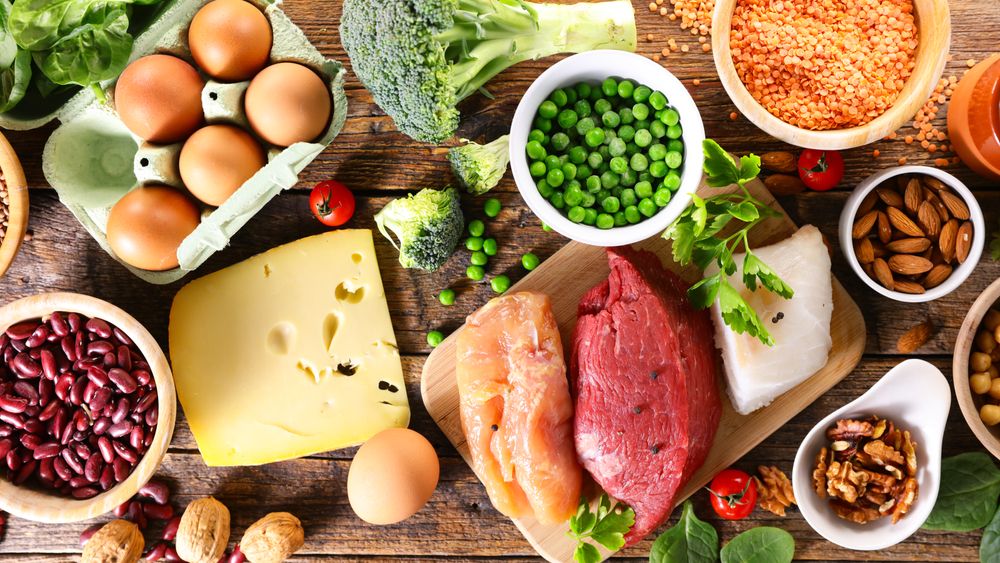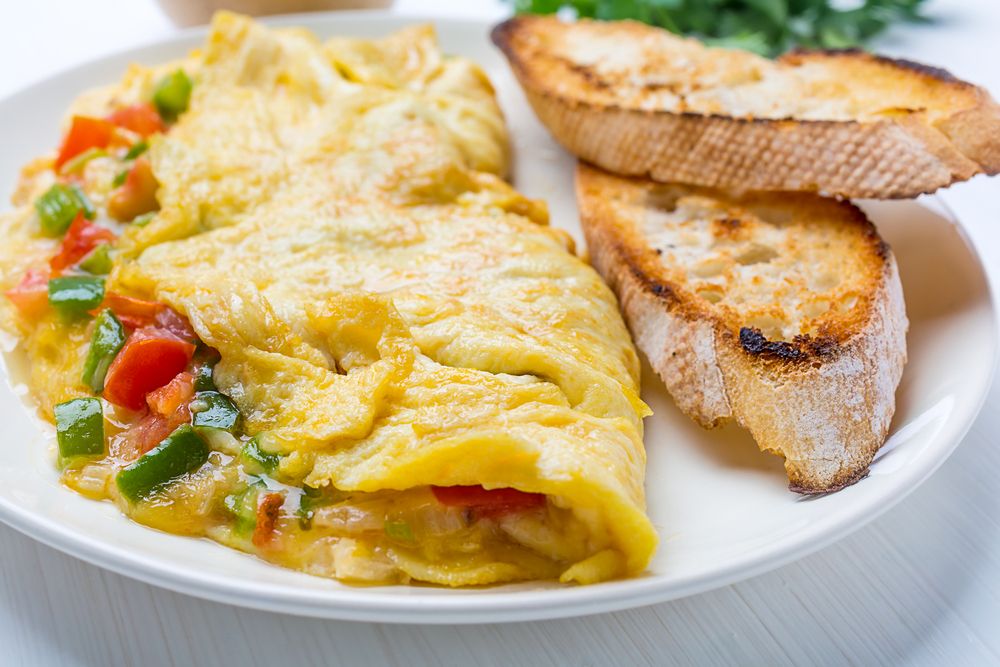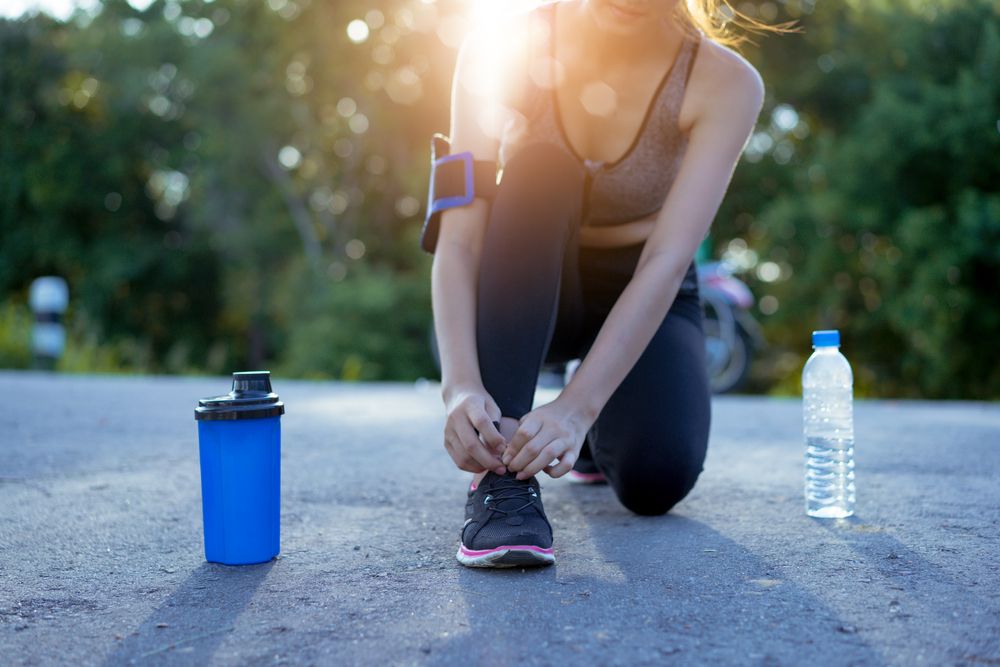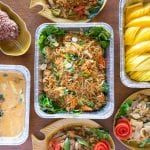You know that exercise and nutrition go hand in hand, so eating smart helps athletes perform optimally from minute one to minute done. Use this guide to help you choose the best foods to eat before a game and help your athletes stay strong on the field, ward off injuries, and perform at their best, all season long.
The benefits of sound nutrition
Leading sports nutritionists would argue that what an athlete eats is always important, but that pre-game meal is the one that can make or break an athlete’s performance in the short term. The best foods to eat before a game are ones that prevent low blood sugar levels, which cause lightheadedness, nausea, blurred vision, weakness, and indecisiveness. They ensure athletes receive sufficient calories and take distracting hunger out of the equation. And they increase muscle glycogen stores, so competitors can feel energized to perform at their physical peak.
Building a competition plate
James Collins is an English sports nutritionist who works with elite athletes, including international soccer teams and British Olympians. His book, The Energy Plan, covers the foods to eat before a game and how to build a performance plate. A meal should cover these four bases:
- Protein for maintenance
- Carbohydrates for fuel and so athletes don’t “hit the wall”
- Vegetables, fruits, and healthy fats for the immune system
- Fluids for hydration
Protein
Here are some great sources of protein for your athletes’ muscles:
- Meats like chicken, eggs, turkey, and beef
- Seafood like tuna, salmon, halibut, and shrimp
- Vegan sources such as tofu, tempeh, quinoa, buckwheat, pulses, and legumes
- Greek yogurt, milk, and cheese

Carbs
Carbs are crucial to building stores of energy for endurance events, but if you don’t want your athletes to bonk, you’ve got to stick with whole grains. Whole-grain versions of pantry staples like bread, pasta, and rice are complex, starchy carbs. Think sweet potatoes, oats, and grains like bulgur. These all fall into a category with a lower glycemic index (GI), and foods with a lower GI are preferable for a sustained energy release.
They also offer more fiber for daily consumption. Still, easily digestible carbs with a higher glycemic index are great for game day, warm-ups, and breaks in the middle of a match when athletes need a blood glucose spike. It’s essential to match your athletes’ intake with their activity level. For example, an endurance athlete such as a cyclist needs about double the carbs that a soccer player requires for a game.
Fruits, veggies, and healthy fats
Vegetables aren’t every athlete’s favorite food, but the rule of thumb is to incorporate at least two different vegetables in every dish (remember, sweet potatoes count as carbs, not veggies.) Veggies have flu-busting vitamins too, so Increase the proportion of fresh produce during winter and there’ll be fewer sniffles in the changing room. However, go easy on the fruit — the sugar and calories can add up.
Finally, include healthy fats such as avocados, extra virgin olive oil, nuts, seeds, and oily fish. Steer clear of unhealthy fats in foods like desserts and pizza. They slow digestion and leave athletes feeling sluggish.
Fluids
We don’t usually consider water a nutrient, but muscle mass is 73% H2O. If your team is playing an away match, consider the forecast at your destination — hot weather means more sweat, and you want to avoid dehydration. Either way, fluid intake must increase before and after a game to prep and rehydrate athletes’ systems, and some fluid can come from hydrating foods. Each athlete should drink approximately 0.24 fluid ounces for every two pounds of body weight.
The best foods to eat before a game
Breakfast is the fueling meal of champions, and on game day, it might feature:
- oatmeal with your milk of choice
- rye toast with avocado
- an omelet with a whole-grain bread

Options should cater to allergies and dietary restrictions on the team. While fruit juice is not ideal for hydration, smoothies and fresh juices provide athletes with carbs for game day.
Lunch could be:
- Sandwiches with healthy fillings
- Stir-fried noodles with protein or spaghetti and meatballs
- Falafels or another protein in wraps
- Grilled meat skewers with salad
- Baked sweet potatoes with tuna

When prepared well, these meals are satisfying and check the boxes for macronutrients and micronutrients. Grilled and steamed food trumps fried, and meals should minimize condiments and overly processed elements.
When to feed athletes before a game
Allow time for food to digest or gastric upset can occur. Your team should eat a balanced meal around three to four hours before they compete. Half an hour to an hour before the match, it’s snack time. Snacks like hummus, crudités, and healthy versions of banana bread are functional fillers that combine protein and produce.
The best foods to eat during a game
Athletes require at least an ounce of carbs per hour for exercise that exceeds 45 minutes but is under 2.5 hours. Bananas, cereal and protein bars, isotonic drinks, and carbohydrate gels are quickly absorbed. However, athletes should test these energy boosters at training sessions first or they may experience GI issues during crunch time.
The best meals for after a game
The body requires 72 hours to recover from a grueling game. Preparing for post-match meals is vital, especially when dealing with short turnaround times during tournaments with multiple games.

Muscle tissue needs resources to repair. Depleted athletes must refill their tanks with bananas or protein and carb recovery drinks straight after a match and a meal within an hour or so of a game’s conclusion. Balanced refueling meals look similar to the foods to eat before a game and can include pasta with protein, lentil curries with spinach and sweet potato, barbecue, stews, and rice bowls.
How ezCater supplies athletes with the best foods to eat before a game
We partner with thousands of professional kitchens around the country to provide healthy, affordable, and customizable meals on time. Our catering partners can handle flexible headcounts and deliver food right where the action occurs. For the ultimate convenience, our concierge service can offer additional assistance and build an order based on your athletes’ nutritional needs to save you time. So whether you’re on home turf or the road, your teams are nourished and raring to go. Learn more about how ezCater supplies athletes with the best foods to eat before a game.







